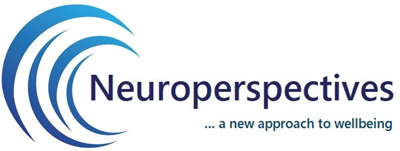Corporateperspectives Programme
Invest in your own and your employees' psychological wellbeing and see tangible results immediately.
Our workplaces are evolving. Organisations that understand the complexity of human behavior, appreciate the relationship between our mental, emotional and physical health and prioritise a workplace culture which supports mental health will not only survive, but thrive.
Programme Features :
- Pre-programme individual consultation via Zoom.
- Pre-programme psychosocial and personality assessments.
- Two full day, interactive and in-depth workshops which explore the dynamics of human emotion and behavior including :
- Personality, emotional intelligence, personal resilience and stress tolerance
- Susceptibility factors contributing to mental and emotional distress
- Preventative strategies to support and maintain employee mental and emotional health
- How to recognize early indications of mental and emotional distress and immediate interventions which prevent distress from escalating
- How to have difficult conversations around topics such as anxiety, depression, stress and burnout
- The evolution of corporate culture and integration of workplace strategies that support employee mental and emotional health
- Participants will leave this programme with the essential psychoeducational knowledge, techniques and personal strategies necessary to ensuring their mental and emotional wellbeing going forward
- 3 nights luxury accommodation and fine dining in a stunning 5 star resort with state of the art leisure facilities including swimming pools, spa and fitness centre.
- Welcome reception on evening of arrival followed by dinner.
- Special Farewell Dinner.
- Post-programme consultation via Zoom.
- Ongoing consultations as required.


A Whole New Approach
We are at a critical juncture as a society. According to the World Health Organisation, 25% of people around the globe suffer from a mental health condition (WHO, 2022) and depression and anxiety account for approximately 40% of all mental health disorders (UNICEF, 2022).
The research findings are concerning and it is evident that a new approach which recognises the importance of mental health in the workplace is vital. Organisations that prioritise employee mental health and foster a culture which supports this, clearly see the benefits of reduced healthcare, compensation and disability costs, reduced absenteeism and presenteeism and importantly, better work quality and loyalty from employees. They also have a better ability to recruit and retain people.
Neuroperspectives works with enlightened organisations to build a culture of mental health from the top down – CEOs, COOs, Heads of People and Senior Management who understand that the lived values they model truly inspire others. It is time for a new approach based upon a genuine desire to see employees thrive and to provide an environment which allows them to feel heard, supported and the opportunity to be what they are capable of being, in which case, everyone benefits.
Research
“Globally, mental illness is a leading cause of disability and contributes to more work loss and work impairment than other chronic medical conditions” (Woodard et al., 2024)
“Mental health resilience is crucial to professional wellbeing and productivity, being that 57% of company employees are reporting burnout. Additionally, early-stage preventive mental health interventions are not common, and typically employees only have access to mid-stage professional care” (Maçorano et al., 2024)
“Men’s mental health has been labeled a “silent epidemic”. Common mental health problems such as anxiety and depression are cited as significant contributors to the global burden of disease among men” (Roche et al., 2024)
The total cost of mental ill health in the UK in 2022 was £300 billion. The industry sector bore the second largest cost of mental ill health at £100.6 billion. The greatest costs to industry and businesses were economic costs of staff turnover which amounted to £43.1 billion, followed by presenteeism which totaled £41.8 billion and economic inactivity which cost £9.2 billion (Frederico & McHayle, 2024)
Lost productivity associated with anxiety and depression, two of the most common mental health problems, is estimated to cost the global economy US$1 trillion each year (World Health Organisation, 2022)


The results of the American Psychological Association’s (APA) 2023 Work in America Survey confirmed that psychological well-being is a very high priority for workers themselves. Specifically:
- 92% of workers said it is very (57%) or somewhat (35%) important to them to work for an organization that values their emotional and psychological well-being.
- 92% said it is very (52%) or somewhat (40%) important to them to work for an organization that provides support for employee mental health.
- 95% said it is very (66%) or somewhat (29%) important to them to feel respected at work.
- 95% said it is very (61%) or somewhat (34%) important to them to work for an organization that respects the boundaries between work and nonwork time.
81% of workers reported that they will be looking for workplaces that support mental health in the future (APA, 2022)
76% of U.S. workers reported at least one symptom of a mental health condition (Mindshare Partners, 2021)
Typical Daily Schedule
- Optional morning activities (meditation, yoga, gym, swimming, walks)
- Breakfast
- Morning Workshop 9.00am to 12.30pm
- Lunch 12.30pm to 1.30pm
- Afternoon Workshop 1.30pm to 5.00pm
- Free time 5.00pm to 7.00pm (spa treatment, swimming, gym, walks)
- Drinks reception 7.00pm
- Dinner 8.00pm

Workshop Activities
Workshops are interactive, intensive and enjoyably challenging. They include In-depth exploration and group work relating to personality, self awareness, interpersonal skills, emotional regulation, motivation, empathy and resilience. Issue focusing activities, brainstorming sessions and problem solving scenarios are utilized to prevent mental and emotional distress and also to identify early warning signs of mental and emotional distress and to learn new ways to manage this effectively.

Personal Time
It is important that participants have some personal time to reflect on what we have covered, socialise and unwind. From 5pm to 7pm participants are free to engage in a wide variety of activities or simply relax and enjoy the resort.




